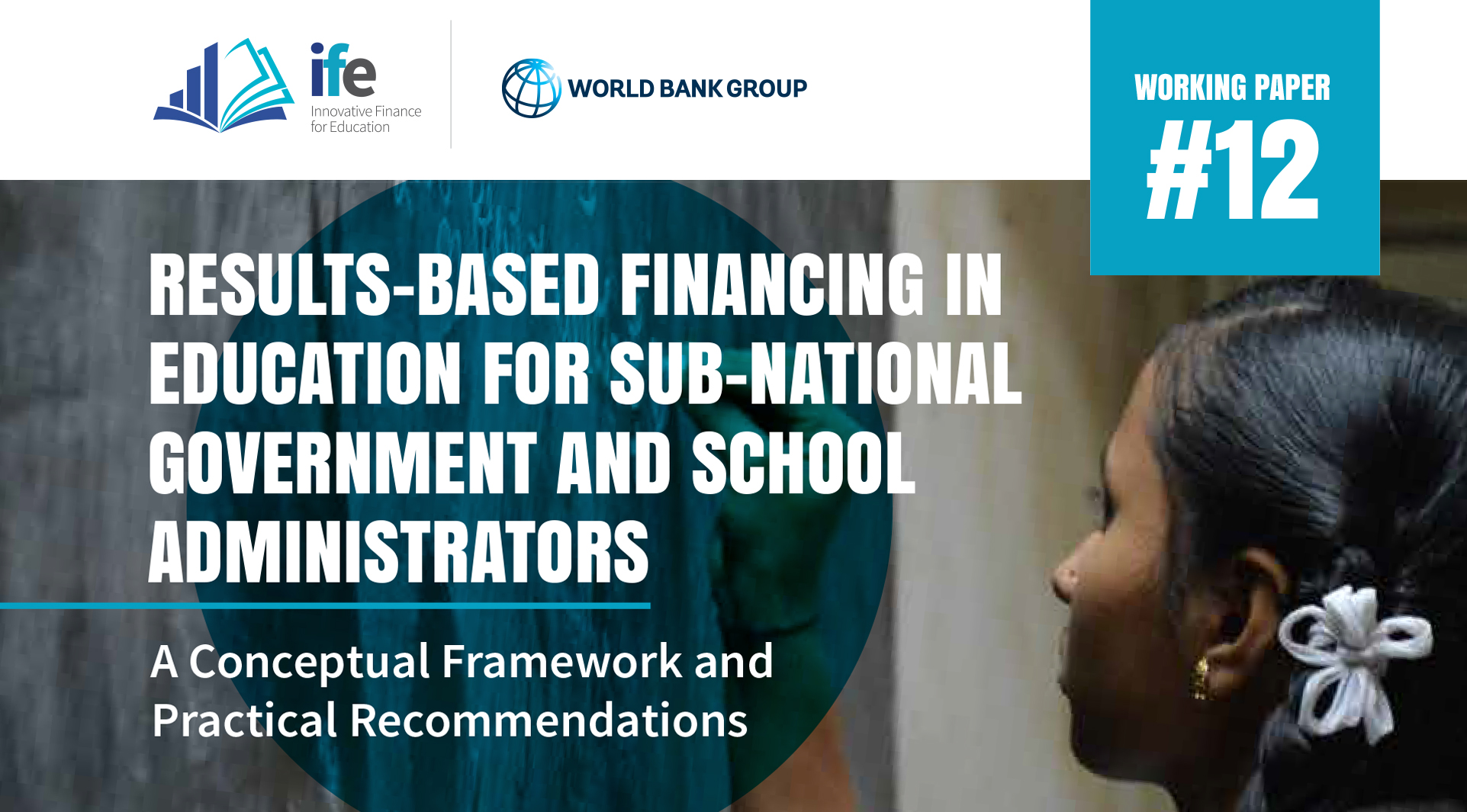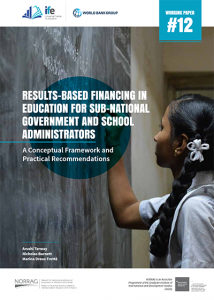Results-based Financing for Education for Sub-national Government and School Administrators: A Conceptual Framework and Practical Recommendations
Typically, national governments are incentivised by international aid agencies through Results-Based Aid (RBA), front line workers are incentivised through some type of performance bonus and beneficiaries are given conditional cash transfers. Empirical research on RBF interventions for these actors has demonstrated mixed results, especially in terms of the impact on learning outcomes. Because of the complexity of isolating the impact of aid to national governments on the entire education system, the majority of available research focuses on the impact of incentives on frontline workers or on beneficiaries. Previous reviews have acknowledged that RBF arrangements in any form are made within complex systems where the context of the entire education system influences the impact of the tasks undertaken by the incentivised actor. Guidance from Global Partnership for Results-Based Approaches (GPRBA) and Results in Education for All Children (REACH) further elaborate that the introduction of RBF interventions at one level could initiate a chain of RBF interventions (a “cascade”) at other levels to align actors at the different levels towards the same defined results. However, to date, there is no comprehensive review designed to understand the impact of the chain of incentivisation of actors at different levels on education outcomes.
This review applies Principal-Agent theory to explain the causal mechanisms at work in the use of RBF to improve education service delivery. It uses this theoretical framework to examine RBF interventions to incentivise meso-level actors. For the purpose of this study, meso-level is defined as actors and/or institutions who are in charge of education system management and administration at local government (e.g., province, region, district) or school level, such as district education officers, school management committees and school directors. Research for this review was based on published literature and project documents on meso-level RBF interventions in education systems of low-and middle-income countries.
This study used qualitative data analysis to draw lessons from diverse experiences with RBF at the meso-level of the education sector, particularly in low-and middle-income countries. We drew upon the experience of those who have designed, implemented and/or researched such RBF initiatives. The review included four different sources of data: 1) academic literature; 2) project documents; 3) a global survey; and 4) key stakeholder interviews.
This review finds a divergence from the universal theory needed to explain the unique nature of meso-level actors’ work. We, therefore, propose broadening the definition of RBF and viewing it as a set of reforms that align the objectives of multiple stakeholders by focusing on a common results framework, linking financing to these results, strengthening results measurement and giving autonomy to actors to achieve the results. We further propose to apply learnings from the Performance-Based Budgeting literature so that RBF for the middle management of education systems can be implemented in a differentiated way, depending on the contextual reality of the existing system. This review then ends with some recommendations to consider when designing RBF interventions for meso-level actors.
Download Working Paper #12 in NORRAG Resource Library, please note that two files are available: low graphics (2 MB PDF file) and high-resolution graphics (7 MB PDF)


